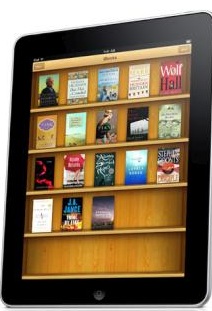

Editor’s note: This a guest post written by Joff Redfern. Redfern is the co-founder of FlattenMe.com, a site for creating personalized storybooks. He was formerly a vice president of product at Yahoo, where he managed Yahoo Buzz and Toolbar.
Amazon Kindle: The Road Ahead
I’m a recent Kindle fan boy. I like the instant access to earth-friendly books, the paper-like display and the way it fits in my hand like a paperback. I’ve also deeply admired the crispness of the Kindle vision—“any book, any language, in minutes”. But with Apple’s iPad announcement the playing field on which the Kindle competes shifts and the disruptive technology itself gets disrupted.
If I were running the Kindle I would answer this question today: “Are we innovating the publishing or the entertainment industry?” Is the Kindle just for my reading entertainment or is it for watching, listening, gaming, browsing, sharing photos, and communicating with friends & family too? Ultimately the answer is shaped by consumer preference, competitors and time measured in years.
As a product guy this is a really intriguing question to try to unravel—which path should Amazon choose? Over time this is what may push the Kindle into being more than just a reader . . .
For the same price, more is better
Will consumers prefer a multi-purpose entertainment tablet over a single-purpose reading device as their prices converge? This is a religious question; sides will be drawn. I look to the evolution of my own personal technology habits for the answer.
When I wanted to manage my contacts I started with a paper-based Address Book, upgraded to a Digital Rolodex, upgraded to a Palm V, upgraded to a Blackberry, then upgraded to an iPhone. Fundamentally I was trying to solve how I manage and communicate with my contacts. With each upgrade I got more functionality yet the price point for each device was not radically different.
If consumers can eventually get an entertainment tablet that also has the core features of a great reader (screen, content catalog, ease of purchasing) at under $200 they’ll want more.
Prices drop. Over time, price won’t be a factor in the purchase decision.
Today, Kindle enjoys a price advantage over the iPad. It is nearly half the price, starting at $260 versus $500 for the iPad, although the cheapest Kindle DX with an equivalent 9.7 inch screen is $489. That is pretty close already. What happens when the price of iPad-like devices trend down to a point of consumer indifference?
Moore’s Law and business model innovation will drive the iPad-like devices to sub-$200 pricing. Unrealistic? The retail price of the iPhone 8GB dropped ~83% in 3 years from $599 to $99.
Also keep in mind that entertainment tablets are using different math from the Kindle. The device pricing will be “subsidized” by multiple revenue streams—downloads of books, music, movies, games, apps, advertising, and more. Today I can get a cell phone device for “free”, will my iPad be “free” some day?
Competitors are playing a platform war. Is Kindle?
Apple, Google and Microsoft have massive investments in their respective mobile platforms. In particular, Apple is king of the mobile mountain. As Jobs declared today, “Apple is now the largest mobile device company in the world”.
This Apple sizzle has drawn 100,000+ developers and publishers to its iPhone (and now iPad) ecosystem. These apps are already available to entertain us in all sorts of ways on the iPad beyond what Apple exec Scott Forstall showed today.
Amazon knows this. Last week they announced a developer API is coming. So the question remains how robust is the API and will the developer community bite, or is it game over?
What would you do if you ran the Kindle?